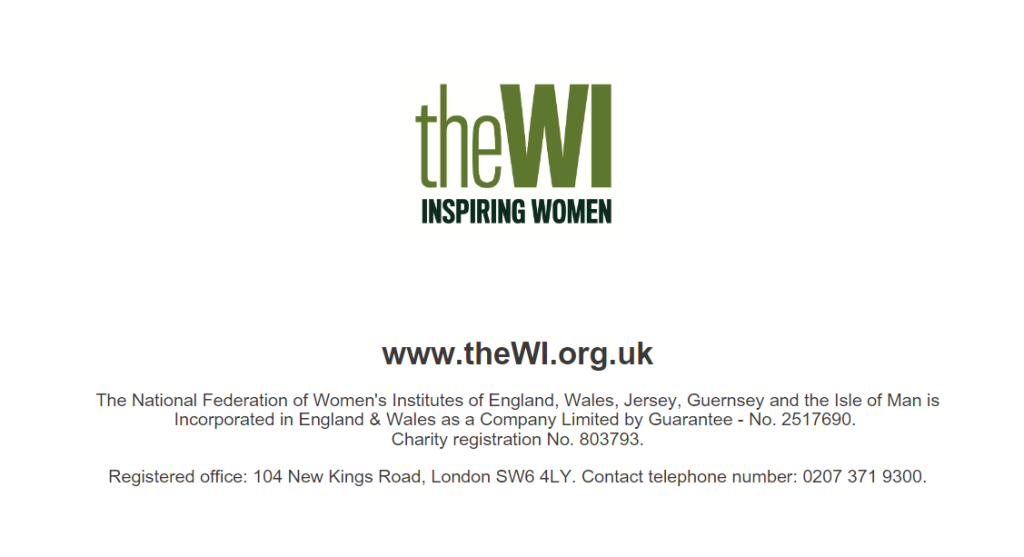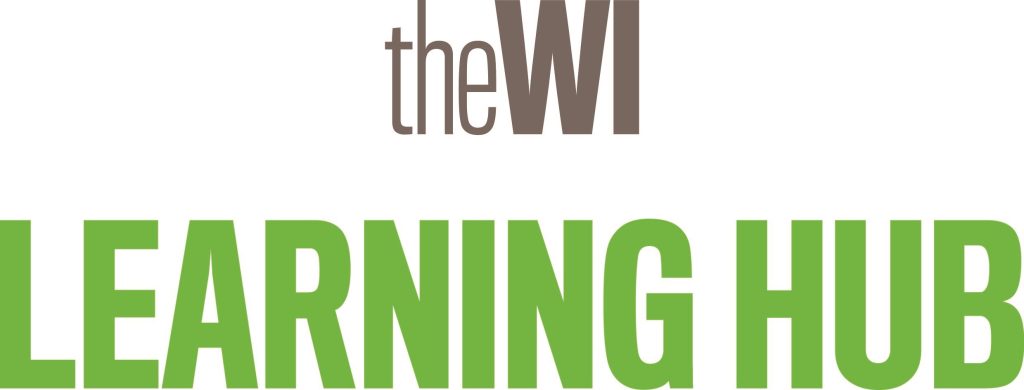Welcome to Module B of the WI Core Training – The Constitution.
We’re excited to guide you through this series of core modules, designed to give you an in-depth understanding of the WI as an organisation. In this module, we’ll explore various charity structures and governing documents, focusing on the NFWI and the different regulatory bodies that provide guidance based on location. By the end, you’ll have a solid grasp of the WI’s legal and constitutional requirements and your role in upholding them.
Whether you are in a key federation or WI role, this training is designed to give you an overview of the organisation before moving on to the training specific for your role.
This module will take approximately 30 minutes to complete, plus any additional reading you may need to undertake.
If you have any queries regarding the training, please contact the NFWI Learning & Development Team: wilearninghub@nfwi.org.uk
Please find the video below for you to watch, followed by the short test for you to complete before moving onto Module C:
Core Module B - The Constitution
Resources:
Slide 5:
Constitution:
https://mywi.thewi.org.uk/essential-information/wi-policy-and-guidance#constitution
Charity Commission for England and Wales: https://www.gov.uk/government/organisations/charity-commission
Attorney General for the Isle of Man
https://www.gov.im/about-the-government/offices/attorney-generals-chambers/
Jersey Charity Commissioner:
https://charitycommissioner.je/
Guernsey Register:
https://www.guernseyregistry.com/charities
Slide 7 :
WI Handbook:
https://mywi.thewi.org.uk/running-your-wi/wi-handbook
Contacts:
Federation Trustee:
As a Federation Trustee it is vital you have a sound understanding of the WI’s legal structure and constitutional framework overall as well as having a strong working knowledge of the relevant constitution or articles of association for your federation. Trustees should ensure the federation is complying with their governing document and charity law at all times.
A copy of the WI Constitution can be found here on My WI.This is a great source of reference for a Federation Trustee. The WI Handbook is also a good reference document and can be found here or visit https://mywi.thewi.org.uk/running-your-wi/wi-handbook.
WI Adviser:
As WI Advisers you will be guiding and supporting WIs through the constitutional process.
It is important that you understand the WI’s legal structure and constitutional framework to help those that are keen to set up WIs and take on leadership roles within their WIs, feel they have a clear idea of their legal obligations and feel comfortable with some of the terminology. You can help bring confidence by explaining the start up process in a simplified way.
As a WI Adviser, it is important that you are familiar with the WI Constitution to help WIs set up and run effectively. It will ensure that good habits and practices are adopted from the beginning. It is also worth noting that a WI cannot be formally opened unless it is done by a WI Adviser. So, you can see how crucial your role is in ensuring that a new charity, from day 1, is set up correctly and has strong governance.
A copy of the WI Constitution can be found on My WI and is a great source of reference for a WI Adviser who has a role in ensuring these are in place as is the WI Handbook which can be found here or visit https://mywi.thewi.org.uk/running-your-wi/wi-handbook. Here are a few of the highlights of what you need to know so you can advise the WI.
- Understanding the different trustee leadership roles at WI level, including the [4] Officers, and the committee, and enabling these roles to act in the WIs’ best interests.
- Helping them understand the election procedure for particular roles on the committee, which means how the process works and how often it takes place.
- Helping these leadership roles run WI meetings, and being there for the first few so to ensure good governance practices from the outset.
- Ensuring that there are a minimum of 11 WI meetings a year, and 6 committee meetings a year and the procedure for an annual meeting.
- How voting works on committees and the importance of keeping records of decisions for future reference which helps new Officers understand when and why decisions were made.
- How sub-committees work and their roles and responsibilities.
- Ensuring the committee understands the importance of updating the MCS and that members’ personal data is held in accordance with the data protection legislation.
- Understanding what WI funds can be used for, that WIs need to keep proper accounts and have them independently examined by an Independent Financial Examiner (IFE) each year.
If you’re taking on an Officer role in a new or existing WI, it’s important to understand the WI’s legal structure and constitutional framework. This knowledge will help you feel confident in your responsibilities and comfortable with the key terms. The WI Constitution and WI Handbook are essential resources that support good habits and effective practices for all WIs.
You can find a copy of the WI Constitution on My WI, along with the WI Handbook here: https://mywi.thewi.org.uk/running-your-wi/wi-handbook. These resources will help you get started, and here are some key areas to focus on as you learn more:
- Understanding Roles: Get to know your responsibilities as an Officer and those of your fellow Officers. (Your training will cover this in more detail.)
- Election Procedures: Learn how elections for committee roles work and how often they take place.
- Running Meetings: Understand how to run your WI meetings. If you’re unsure, don’t hesitate to ask your federation for support.
- Meeting Requirements: WIs must hold at least 11 WI meetings and 6 committee meetings annually and follow the process for annual meetings.
- Voting and Records: Know how voting works and why keeping records of decisions is important to help track when and why decisions were made.
- Sub-committees: Understand how sub-committees operate and their responsibilities.
- Data Protection: Keep the Membership Communication System (MCS) updated and ensure members’ personal data is handled according to data protection laws.
- Finances: Learn what WI funds can be used for, maintain proper financial records, and have accounts independently examined by an Independent Financial Examiner (IFE) each year.
If you’re part of a new WI, your WI Adviser will guide you through these areas to help you feel confident. If you are an existing WI, you should reach out to your federation for support with any queries.
Test Your Knowledge
Thank you for completing the WI Core Training – Module B. In order to pass this test you must receive an 80% pass mark; you will have a maximum of three attempts to achieve this score.
Please enter your details at the end of the test.
NFWI will be able to track your progress and upon completion of the final module of your online training, you will receive a certificate.


